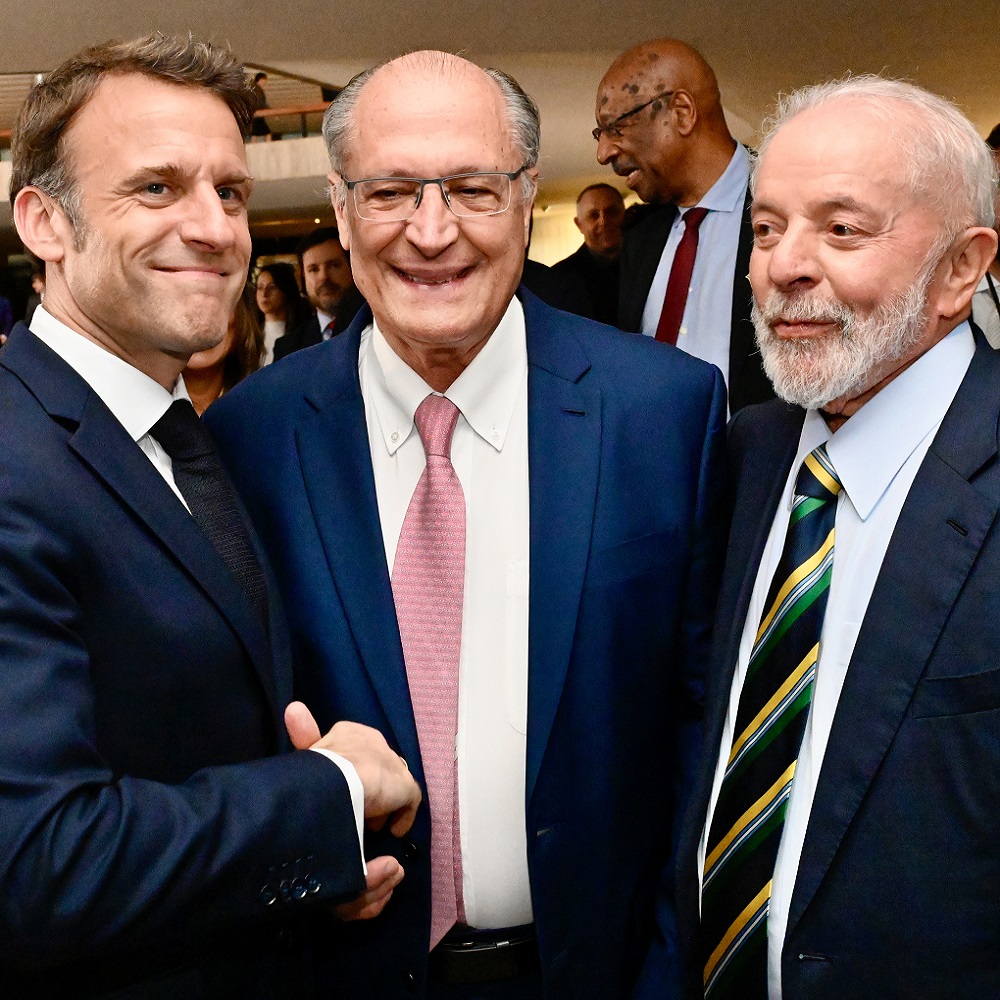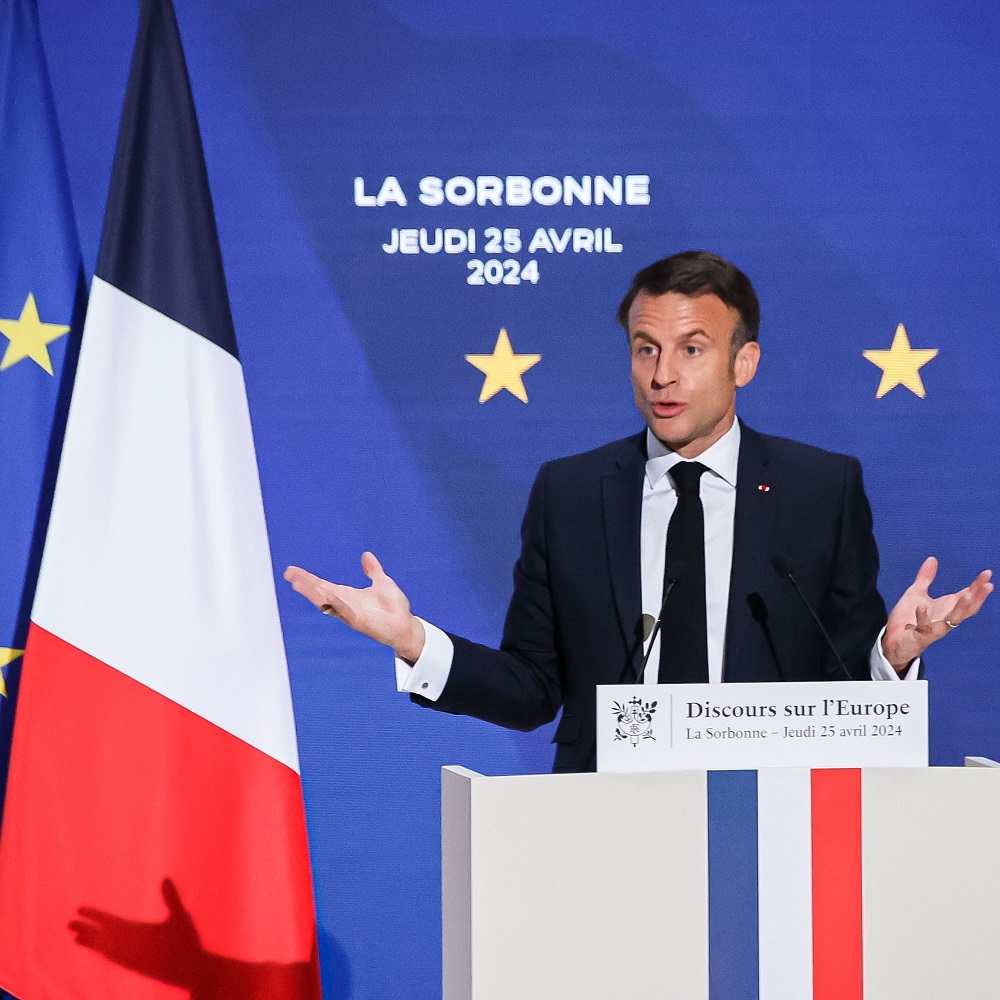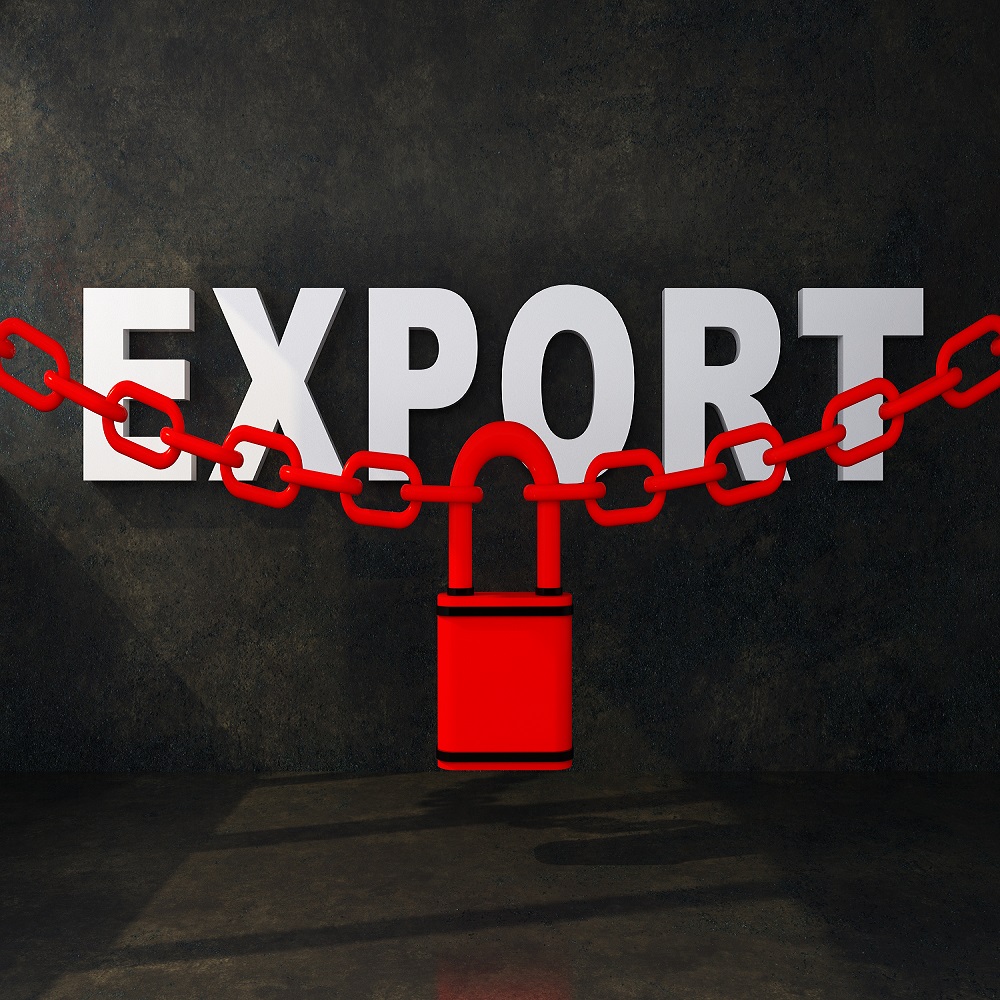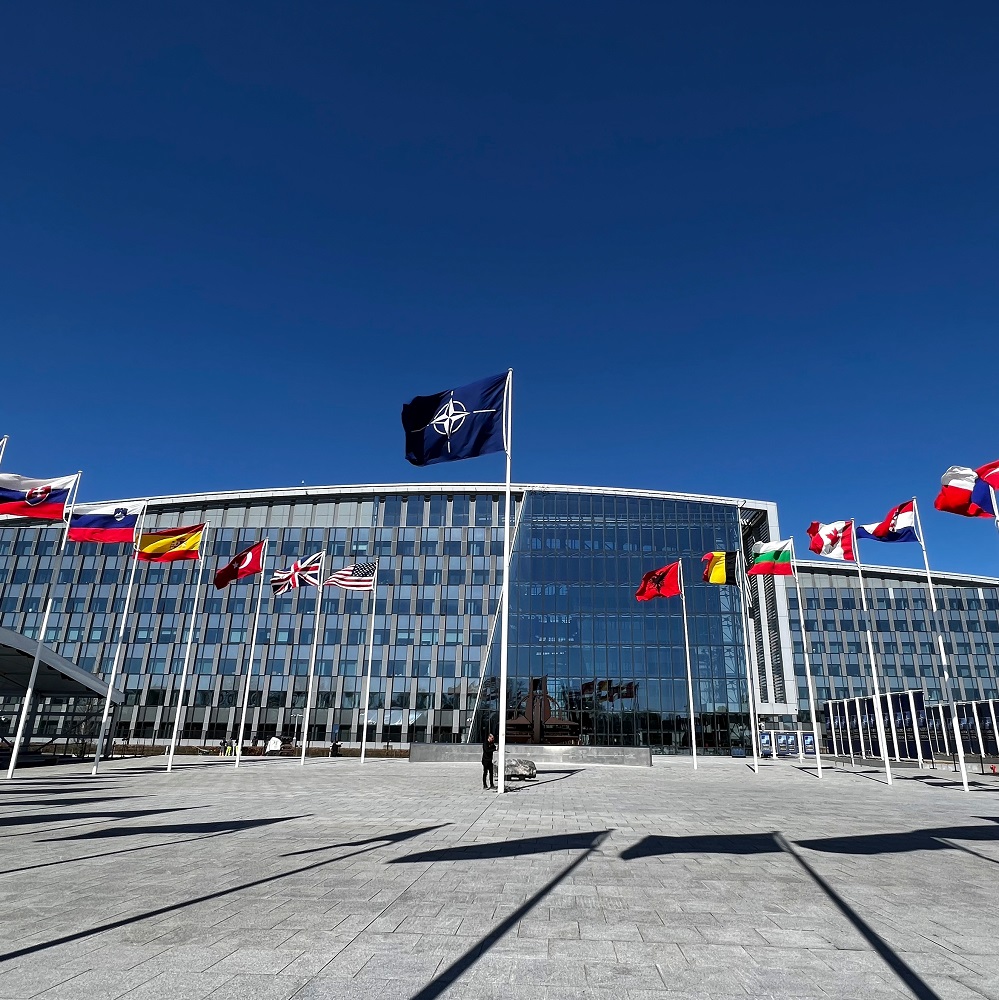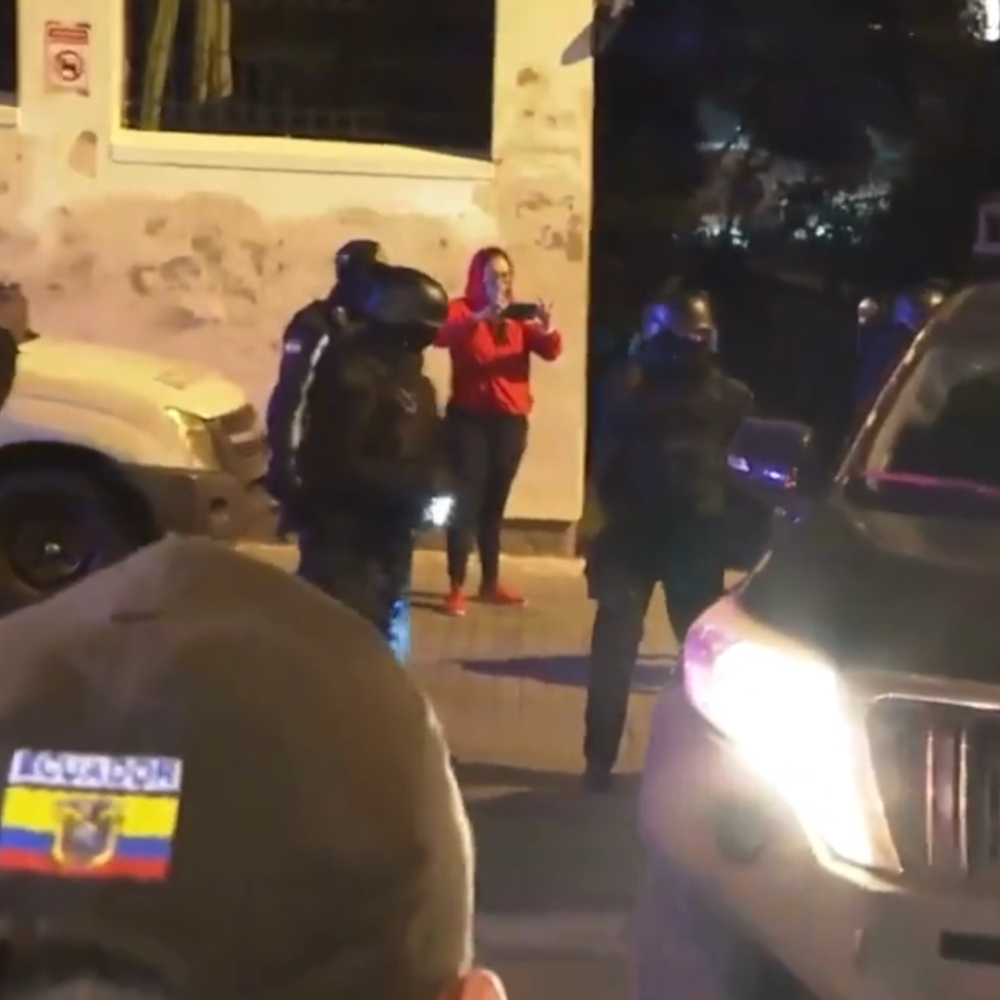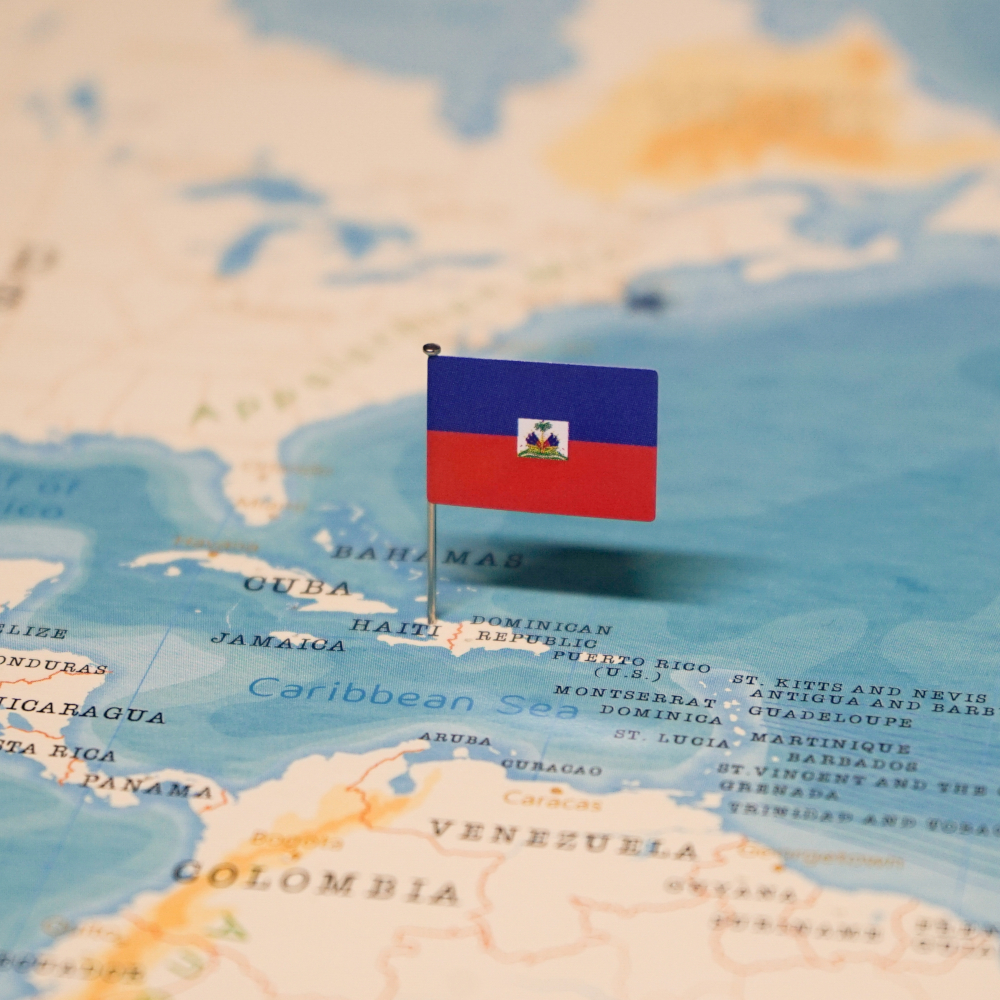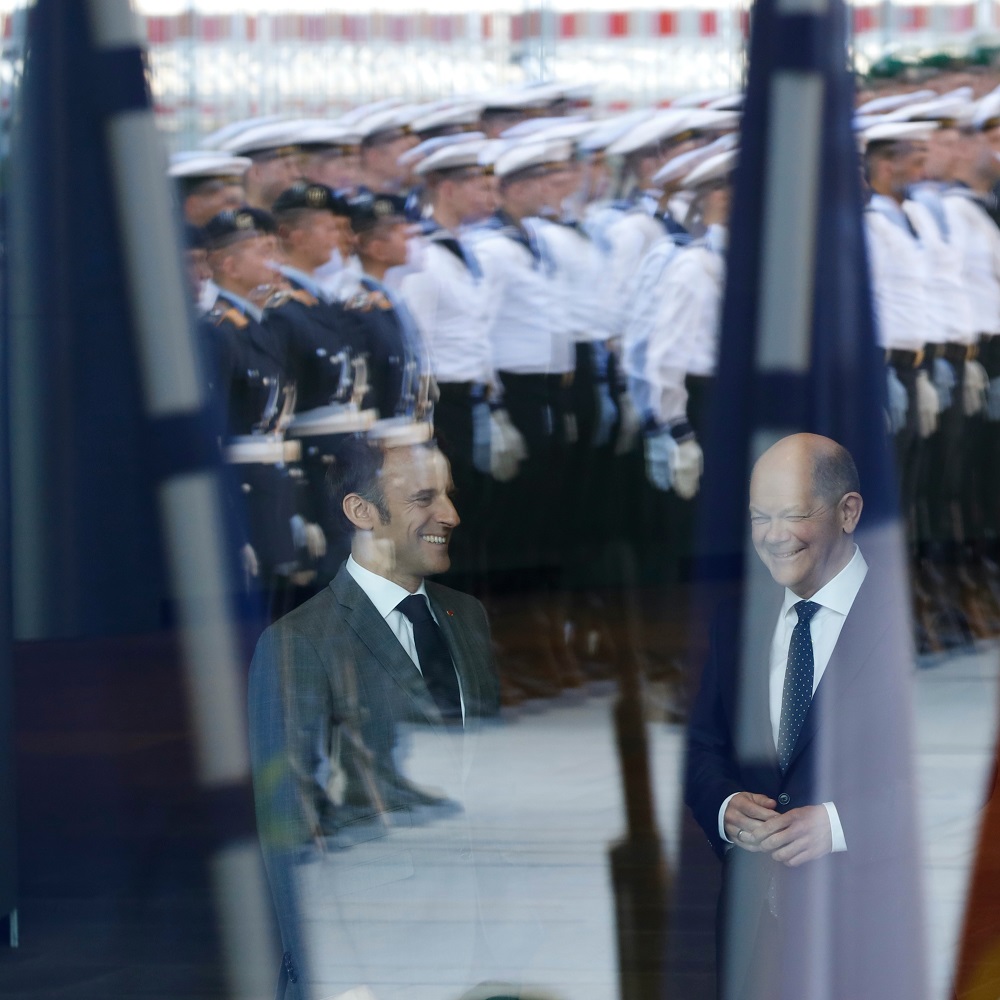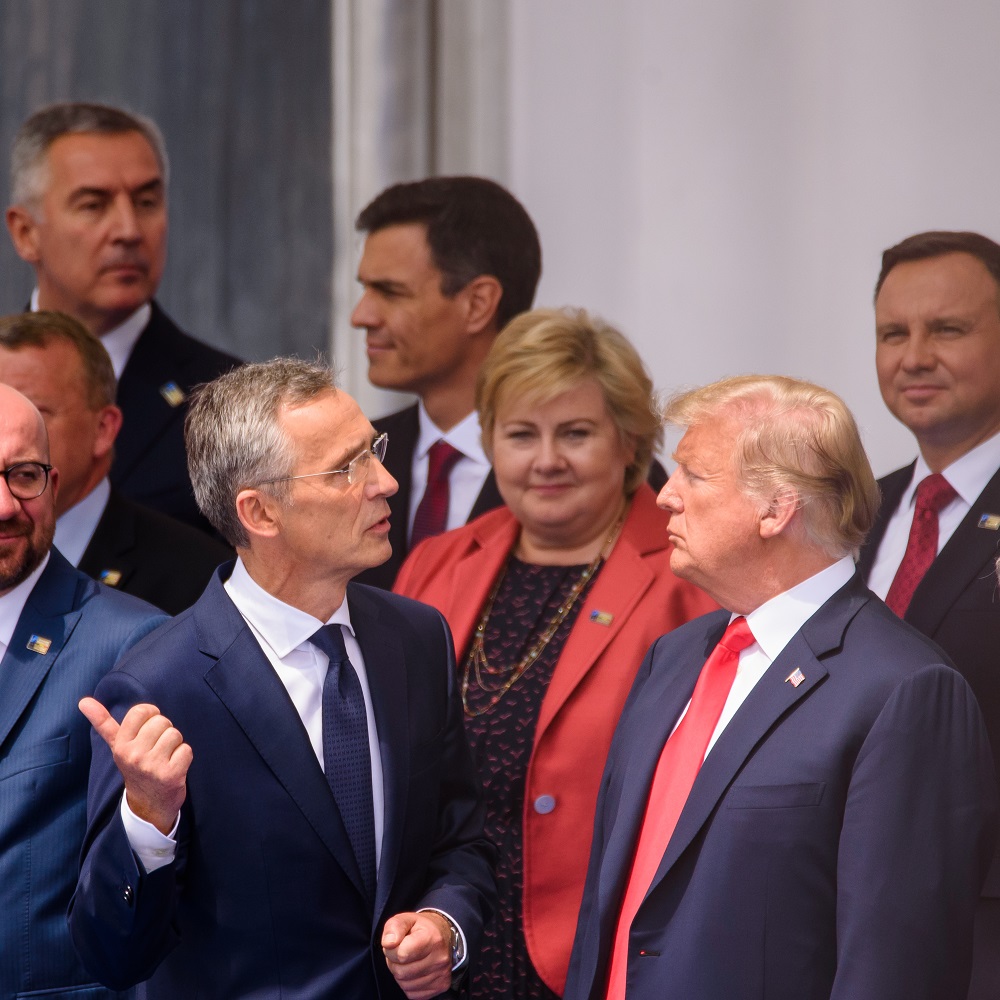Haiti: between violance and political instability
by Rosa Eugenia Sandoval Bustos
Haiti is experiencing a widespread crisis of its institutions, political turmoil, high levels of poverty, disorder and increasing violence in the streets. Last nearly 5,000 people were assassinated and another 2,500 were kidnapped, according to the United Nations, more than double the number in 2022. [1]
In this context, on March 11th, Prime Minister Ariel Henry, who is out of the country, announced his resignation once the necessary mechanisms for the transition of the government are in place. This publication describes the events that led to Henry’s resignation, the international community’s reaction, the outbreak of violence, as well as some points for reflection on what lies ahead for the Caribbean country.
The resignation of Ariel Henry
The current Prime Minister of Haiti, came to power following the assassination of the country’s former president, Jovenel Moise, in 2021. He had previously stated that he would resign in February, but later indicated that he would do so only once national security was restored. On February 29, following pressure from members of the Caribbean Community (CARICOM), Henry pledged to hold general elections before August 31st next year. In the meantime, the regional mechanism would send an assessment team to help plan the elections. [2] Although CARICOM does not have a unified foreign policy, they “generally promote democratic governance” in their public discourse, said Rasheed Griffith, executive director of the ‘Instituto de Estudios del Progreso del Caribe’. [3]
Henry’s reluctance to resign soon caused the violent protest to escalate, especially in Port-au-Prince, where most of the city is controlled by gangs. Among the gangs, one leader, Jimmy Chérizier, has stood out, calling for Henry’s government to be overthrown and warning of a “civil war that will lead to genocide” if the prime minister does not resign. [4]
In addition, last January, the mandates of the last ten elected senators in Haiti officially expired, leaving the country without any officials elected by the people. Moreover, Henry’s government is linked to that of the also controversial Moise, who in any case, would have ended his term in February 2022. Henry has remained in office without constitutional legitimacy. [5]
Last week, after traveling abroad, Henry tried to return to Haiti, but had to change his itinerary because gangs blocked access to the Port-au-Prince airport. The Prime Minister sought to land in the Dominican Republic and cross the border but was prevented from doing so by the neighboring nation’s authorities, so he was deviated to Puerto Rico. The United States then urged the Caribbean leader to “accelerate the transition to an empowered and inclusive governance structure.” [6] Originally, Henry had gone to Kenya to sign an agreement to pave the way for a multinational force to operate in Haiti.
Amidst the growing violence and insecurity on the streets, the European Union evacuated its personnel on March 14th. The spokesman for the diplomatic division of the European Commission, Peter Stano, said that the bloc is “extremely concerned” about the situation, given the attacks on hospitals and prisons, food shortages and blocked infrastructures. [7] The US Armed Forces also withdrew non-essential personnel from its embassy, as reported by the Southern Command in a statement. [8] The UN has stated that it will remain in Haiti.
On March 11th, senior officials from different countries met in Kingston, Jamaica, for a meeting convened by CARICOM to analyze the crisis. The US State Department reiterated Washington’s support for the creation of an “independent” body to assume presidential powers in Haiti, as well as the deployment of a security mission to help contain the violence. It also announced that it will provide 300 million pesos to alleviate the situation in the Caribbean country. [9] The initiative, which contemplates these resources, is under review by the House of Representatives’ Foreign Affairs Committee [10].
From Puerto Rico, Henry participated in the CARICOM meeting virtually. At the end of the meeting, during a press conference, the temporary president of the Caribbean Community and leader of Guyana, Irfaan Ali, announced that Henry had agreed to resign from his position. He said the prime minister would step down after “the establishment of a transitional presidential council and the appointment of an interim authority”. Later, in a video, Henry stated that he would continue to “handle current affairs until the appointment of a prime minister and a government”.
The council will include the participation of the main political parties, the private sector and the Montana Agreement, a coalition that proposed the formation of an interim government and a roadmap following Moise’s assassination [11]. Among the members of the mechanism is the political force Pitit Desalin, led by former senator and presidential aspirant Moise Jean-Charles. The EDE party of former Prime Minister Charles Joseph, the Fanmi Lavalas formation, and the December 21st coalition led by Henry, will also have a vote [12]. In addition, there will be two non-voting observers, one from civil society and another from the religious community. None of the members of the collegiate body may have been accused or convicted in any jurisdiction, be sanctioned by the UN, or seek a position in the upcoming elections in the country [13]. In theory, this council should be defined tomorrow, Thursday, March 14th, in the meantime, negotiations are underway to define who will form this structure [14]. The United States indicated that Henry could stay in Puerto Rico or go anywhere in its territory in case it is unsafe to return to Haiti [15].
Actions to set up a multinational support mission
Since 2022, Prime Minister Henry called on the international community to integrate a support mission to strengthen the Haitian National Police (HNP) [16]. Kenya responded to this call in July 2023, when it announced its intention to “lead” the initiative and send “1,000 police officers to the Caribbean nation” [17].
In October 2023, the United Nations Security Council (UNSC) adopted Resolution 2699, authorizing the deployment of a multinational ad hoc security support mission to Haiti, under the leadership of Kenya [18]. The start of this operation has been delayed due to challenges in African country’s courts, which a few days ago the leaders of Haiti and Kenya tried to resolve by signing a bilateral security agreement. The international community has responded very timidly to the initiative. The Bahamas pledged 150 people. Jamaica and Antigua & Barbuda expressed their willingness to help. Benin offered to send 2,000 soldiers [19]. Spain also showed interest in contributing to the cause. However, on March 10th, the UN stated that despite the promises, a trust fund to pay for this force only amounts to 10 million dollars [20].
The new mission will not be a blue helmet operation. Its objectives will be to protect the state institutions, as well as critical infrastructure and transportation hubs. They will also seek to pacify gangs. It has been reported that an advanced contingent of several hundred officers will be deployed to survey the terrain [21].
To avoid repeating the problems the UN mission has had in the country, such as the spread of cholera and cases of exploitation and sexual abuse, there will be very rigorous scrutiny to oversee the multinational mission. This time the Security Council resolution demands appropriate wastewater management measures to prevent the introduction and spread of disease, as well as robust, secure, and accessible mechanisms for lodging complaints and conducting investigations into any allegations of misconduct, including sexual assault [22]. However, for the time being, Kenya has communicated that the deployment of its agents is on hold until a new government is formed in the Caribbean nation, as officials said on March 12th.
Spike in violence and importance of gangs
Port-au-Prince has been the epicenter of gang violence, especially the National Police stations, its cadet academy, the prisons, from which more than 3,500 prisoners have fled, the Sylvio Cator national stadium and the international airport [23]. On March 3rd, the Government declared a state of emergency and a curfew in most of the country, [24] which will be extended until March 22nd. The gang members’ main demand was the resignation of the prime minister, although they also seek to prevent the deployment of international forces. According to international analyst Robert Muggah, the gangs hope to be part of a governing council to lead the country [25].
According to a report done by the Global Initiative against Transnational Organized Crime, there are up to 200 gangs operating in Haiti, and almost half of them have a presence in Port-au-Prince. They range from small groups of youths sharing guns to gangs of more than a thousand people with permanent salaries and automatic weapons that belong to hierarchical organizations. There are two more visible groups: the G-Pèp and the G-9 Family, which control the poorest neighborhoods of the capital. They have been linked to political parties: the G-9 is close to the ruling Haitian Tèt Kale, while the G-Pèp tends to support opposition forces. In this crisis, the G-9 and its allies have taken over the ports and roads surrounding the country’s main airport [26]. Delinquency controls 80% of the capital [27]. Gang members are often aligned with elite businessmen and politicians who finance them [28].
The leaders of some gangs announced an informal alliance called “Vivre Ensemble” (Living Together). As noted above, the most notable leader is Jimmy Chérizier, who is known as “Barbeque”. He was an elite policeman and has shown himself to be bloodthirsty in his operations [29]. Reports say his gang was receiving support from the government of Jovenel Moise [30]. While CARICOM leaders met to discuss the situation in Haiti, Chérizier told reporters that if the international community continued on the same path, it would only “generate more chaos”. “We Haitians have to decide who is going to be the leader of the country and what model of government we want” [31].
Clashes in Port-au-Prince have caused hundreds of inhabitants of the northern part of the capital to flee their homes. The UN reported that more than 800 people died in January. The violence is also driving tens of thousands of Haitians out of the country. The Dominican Republic is the main destination of that diaspora. For this reason, President Luis Abinader issued a cry for help to “save” Haiti [32]. For now, the Dominican government maintains the cancellation of flights to and from Haiti and on March 6th, Carlos Luciano Díaz Morfa, Minister of Defense, announced that they have incorporated strict security measures in the border zone, including more equipment and more personnel [33]. In the United States, the Defense Department and military officials told the Congress that they must be prepared for a possible mass migration from Haiti [34].
Dozens of people have died in the violent attacks and over 15,000 Haitians have been left homeless after fleeing their communities during these clashes. Food, water, fuel, and medical care are scarce. The humanitarian situation is dire. As a result, many people feel that the best thing to do is to leave the country [35]. According to the United Nations, approximately one million people are on the brink of famine, with 350,000 displaced [36].
What’s next after the Prime Minister’s resignation
Some experts wonder what role the gangs will play. Robert Fatton, an expert on Haitian politics at the University of Virginia, says they will necessarily have to participate in the national discussion. Officials will have to deal with the groups and try to convince them to disarm [37]. According to an analysis by Crisis Group, the gangs will have two options in the face of deployment of the multinational forces: if they perceive weakness, they will not submit, but if they see that the intervention is strong, they will consider under what conditions they could disarm [38]. In these circumstances, gangs have emerged as power brokers in Haiti for the first time, posing a challenge for any transitional government [39]. However, for many civic and religious groups involved in the talks, this is a red line.
Chérizier’s next steps are unknown. Days ago, he said that if Henry resigned, “all areas around Port-au-Prince that are blocked or inaccessible will be reopened” and “attacks on police stations will stop” [40]. He also vowed to begin “the real fight against the system of oligarchs and corrupt people” and proposed his own “peace plan”. He demands total amnesty for gang members and that the country be governed by a “council of wise men” in which he would have a place [41]. On March 11th, Chérizier announced that the “Viv Ansanm” gang alliance will not recognize any government resulting from the agreement with CARICOM and that “it is up to the Haitian people to designate their rulers”. On the other hand, an advisor to Guy Philippe, the former rebel leader who recently returned to Haiti and called for “revolution” against Henry, warned that any new government must include him [42].
There is uncertainty about the timing of the transition. For now, security conditions in Port-au-Prince are precarious, while doubts persist about the timetable for deploying an international mission to reinforce the local police and restore order [43]. These days, Henry’s resignation seems to have eased the situation in the capital, as no attacks on government offices or police stations have been reported. The main CPS cargo port opened, and some fuel was allowed to leave the Varreux facilities near the port. However, protests continue in opposition to the CARICOM plan [44].
The economist and political scientist Joseph Harold writes about three aspects of the crisis. First, Haitians are in a humanitarian emergency and aid is not enough. The distribution of supplies should be done by national institutions, not international agencies. This practice weakens the institutional framework. Resources to alleviate the emergency amount to 720 million dollars and only 16% have been collected [45].
In terms of security, it will be difficult for the multinational solution to be successful. Experts are skeptical that a relatively small force led by Kenya, whose officers speak English, not Creole or Frech, will help control the situation [46]. Wooldy Edson Louidor, a Colombian-Haitian professor at the Javeriana University of Colombia, affirms that the support of the international community is important, “but to achieve a Haitian solution. And this involves returning to constitutional order” [47]. Haitians have traditionally opposed any foreign intervention in their internal affairs and pride themselves on being the first black republic to emerge after a slave revolt during European colonialism [48].
The third point is the elections that must be organized [49]. This is not a recipe for conflict resolution, but it is a necessary step. It gives the international community and local actors a goal to work towards [50]. In this sense, analyst Philippe de Bard points out the importance of designing an electoral system that contemplates the constitution of a reliable electoral roll, the integration of a permanent electoral council and the creation of an independent dispute mechanism. He believes that it will be necessary to evaluate the necessary constitutional reforms. A new electoral law requires the approval of the Haitian Parliament, which does not exist today [51].
The immediate term, the challenge is to control the gangs and create a capable police force. After that, the effort should focus on developing a political strategy to establish conditions for free elections [52]. According to proposals by leading figures, this could happen in about two years [53].
In 2009, writer and journalist Sergio Ramirez did a report on Haiti, following two devastating hurricanes and before the 2010 earthquake. He interviewed the head of the UN Stabilization Mission, Hédi Hannabi, who said, “this is not the classic peacekeeping mission, because there are no two parties in conflict, what we have is anarchy, the presence of gangs, and the absence of institutions. If we were to leave today, chaos would ensue. The problem is that more than ten years later, the disorder situation continues [54].
References
[1] Frances Robles, “¿Cuáles son las pandillas que han invadido la capital de Haití y qué quieren?”, The New York Times, 9 de marzo de 2024. Consultado el 12 de marzo de 2024 en: https://www.nytimes.com/es/2024/03/09/espanol/haiti-pandillas-que-pasa.html
[2] CARICOM, “Communiqué – 46th Regular Meeting of the Conference of Heads of Government of CARICOM”, 1 de marzo de 2024. Consultado el 12 de marzo de 2024 en: https://caricom.org/communique-46th-regular-meeting-of-the-conference-of-heads-of-government-of-caricom/
[3] Catherine Osborn, “How Haiti’s Unelected Leader Lost America’s Blessing”, Foreign Policy, 7 de marzo de 2024. Consultado el 12 de marzo de 2024 en: https://foreignpolicy.com/2024/03/07/haiti-crisis-gangs-ariel-henry-united-states-caricom-elections/
[4] Sarah Morland, “Haiti PM commits to elections by 2025, CARICOM to send team”, Reuters, 29 de febrero de 2024. Consultado el 12 de marzo de 2024 en: https://www.reuters.com/world/americas/haiti-pm-commits-elections-by-2025-caricom-send-team-2024-02-29/
[5] Monique Clesca, “Haiti’s Rule of Lawlessness”, Foreign Affairs, 12 de marzo de 2024. Consultado el 12 de marzo de 2024 en: https://www.foreignaffairs.com/central-america-caribbean/haitis-rule-lawlessness
[6] Catherine Osborn, op. cit.
[7] Deutsche Welle, “UE evacúa a todo su personal de Haití”, 11 de marzo de 2024. Consultado el 12 de marzo de 2024 en: https://www.dw.com/es/ueevac%C3%BAa-a-todo-su-personal-de-hait%C3%AD-y-caricom-convoca-cumbre-de-urgencia/a-68493344
[8] Colin McCullough, “Estados Unidos evacuó al personal no esencial de su embajada en Haití por el aumento de la violencia de pandillas”, CNN, 10 de marzo de 2024. Consultado el 12 de marzo de 2024 en: https://cnnespanol.cnn.com/2024/03/10/ejercito-ee-uu-evacuo-personal-no-esencialembajada-haiti-trax/
[9] Jennifer Hansler and Tara John, “US will contribute $300 million to Haiti’s multinational security mission”, CNN, 11 de marzo de 2024. Consultado el 12 de marzo de 2024 en: https://edition.cnn.com/2024/03/11/americas/haiti-us-blinken-security-mission-intl-latam/index.html
[10] Matt Berg y Eric Bazail-Eimil, “State just sent Republicans their Haiti plan”, Politico, 12 de marzo de 4024. Consultado el 12 de marzo de 2024 en: https://www.politico.com/newsletters/national-security-daily/2024/03/12/state-just-sent-republicans-their-haiti-plan-00146474
[11] Monique Clesca, “Haitians Have a Solution to Haiti’s Crisis”, World Politics Review, 8 de septiembre de 2022. Consultado el 12 de marzo de 2024 en: https://www.worldpoliticsreview.com/haiti-gangs-protests-crisis-corruption-crime/
[12] Dánica Coto y Evens Sanon (AP), “El premier de Haití dice que renunciará tras pico de violencia. No está claro quién tomará el relevo”, Los Angeles Times, 12 de marzo de 2024. Consultado el 12 de marzo de 2024 en: https://www.latimes.com/espanol/internacional/articulo/2024-03-12/elpremier-de-haiti-dice-que-renunciara-tras-pico-de-violencia-no-esta-claro-quien-tomara-el-relevo
[13] DW, “Dimisión de Ariel Henry, una esperanza para Haití”, 12 de marzo de 2024. Consultado el 12 de marzo de 2024 en: https://www.dw.com/es/dimisi%C3%B3n-de-ariel-henry-una-esperanza-para-hait%C3%AD/a-68503873
[14] Widlore Mérancourt, Samantha Schmidt, Michael Birnbaum y Amanda Coletta, “As leader resigns, Haitian politicians rush to form new government”, The Washington Post, 12 de marzo de 2024. Consultado el 12 de marzo de 2024 en: https://www.washingtonpost.com/world/2024/03/12/haitiprime-minister-ariel-henry-resigns/
[15] El País, “El caos y una ola de violencia sin precedentes fuerzan la renuncia del primer ministro de Haití, Ariel Henry”, 12 de marzo de 2024. Consultado el 12 de marzo de 2024 en: https://elpais.com/america/2024-03-12/el-caos-y-una-ola-de-violencia-sin-precedentes-fuerzan-la-renuncia-del-primerministro-de-haiti-ariel-henry.html
[16] DW, “Haití reitera la necesidad de una fuerza multinacional”, 10 de junio de 2023. Consultado el 12 de marzo de 2024 en: https://www.dw.com/es/hait%C3%AD-reitera-la-necesidad-de-una-fuerza-multinacional/a-65877041
[17] Frances Robles, “An International Force May Be Headed to Troubled Haiti, again”, The New York Times, 1 de agosto de 2023. Consultado el 11 de marzo de 2024 en: https://www.nytimes.com/2023/08/01/world/americas/haiti-international-intervention.html
[18] Emily Mae Czachor, “U.S. military airlifts embassy staff from Port-au-Prince amid Haiti's escalating gang violence”, CBS News, 11 de marzo de 2024. Consultado el 12 de marzo de 2024 en: https://www.cbsnews.com/news/us-military-airlifts-evacuation-staff-embassy-port-au-prince-haiti-gangviolence/
[19] Samuel Salgado, “Haití firma acuerdo con Kenia para que policías de Nairobi lideren misión de seguridad”, France24, 1 de marzo de 2024. Consultado el 12 de marzo de 2024 en: https://www.france24.com/es/am%C3%A9rica-latina/20240301-hait%C3%AD-y-kenia-firman-acuerdo-paraque-polic%C3%ADas-de-nairobi-lideren-misi%C3%B3n-de-seguridad
[20] Jacqueline Charles, “U.S., Caribbean leaders propose plan to lead Haiti out of crisis and toward elections”, The Miami Herald, 12 de marzo de 2024. Consultado el 12 de marzo de 2024 en: https://www.miamiherald.com/news/nationworld/world/americas/haiti/article286558805.html#storylink=cpy
[21] Crisis Group, “Haiti’s Gangs: Can a Foreign Mission Break Their Stranglehold?”, 5 de enero de 2024. Consultado el 12 de marzo de 2024 en: https://www.crisisgroup.org/latin-america-caribbean/haiti/b49-haitis-gangs-can-foreign-mission-break-their-stranglehold
[22] Ídem
[23] Pablo Ferri, “Haití camina hacia el desastre a la espera de ayuda internacional”, El País, 10 de marzo de 2024. Consultado el 12 de marzo de 2024 en: https://elpais.com/america/2024-03-10/haiti-camina-hacia-el-desastre-a-la-espera-de-ayuda-internacional.html
[24] Carlos S. Maldonado, “Haití, en estado de urgencia y toque de queda tras la huida de miles de presos de una cárcel de Puerto Príncipe”, El País, 3 de marzo de 2024. Consultado el 12 de marzo de 2024 en: https://elpais.com/america/2024-03-03/miles-de-presos-huyen-de-la-principal-carcel-dehaiti-tras-un-asalto-de-las-bandas-criminales.html
[25] Frances Robles, “¿Cuáles son las pandillas…”, op. cit.
[26] Ídem
[27] Nacho Carretero, “Haití, cuando colapsa un Estado”, El País, 2 de julio de 2024. Consultado el 12 de marzo de 2024 en: https://elpais.com/eps/2023-07-02/haiti-cuando-colapsa-un-estado.html
[28] Frances Robles, “¿Cuáles son las pandillas…”, op. cit.
[29] Tom Phillips y Luke Taylor, “Is the feared gang boss ‘Barbecue’ now the most powerful man in Haiti?”, The Guardian, 10 de marzo de 2024. Consultado el 12 de marzo de 2024 en: https://www.theguardian.com/world/2024/mar/10/haiti-gang-boss-kingpin-barbecue-jimmy-cherizier
[30] InSight Crime, “Jimmy Chérizier, alias ‘Barbecue’”, 10 de noviembre de 2023. Consultado el 12 de marzo de 2024 en: https://insightcrime.org/haitiorganized-crime-news/jimmy-cherizier-alias-barbecue/
[31] Coto y Sanon (AP), op. cit.
[32] Carlos S. Maldonado, op. cit.
[33] Jessica Hasbun, “Después no se quejen de las acciones que vamos a tener que hacer”: la advertencia del presidente Luis Abinader por crisis en Haití”, CNN, 12 de marzo de 2024. Consultado el 12 de marzo de 2024 en: https://cnnespanol.cnn.com/2024/03/12/advertencia-republicadominicana-haiti-luis-abinader-orix/
[34] CNN, “Última hora de la violencia en Haití, las pandillas y la dimisión del primer ministro en vivo: noticias y más”, 12 de marzo de 2024. Consultado el 12 de marzo de 2024 en: https://cnnespanol.cnn.com/2024/03/12/ultimas-noticias-sobre-la-escalada-de-la-violencia-en-haiti-y-dimision-delprimer-ministro-en-vivo
[35] Frances Robles, David C. Adams y Andre Paultre, “With Haiti in Chaos, a Humanitarian Crisis Is Rapidly Unfolding”, The New York Times, 9 de marzo de 2024. Consultado el 12 de marzo de 2024 en: https://www.nytimes.com/2024/03/09/world/americas/haiti-gangs-political-uprising-ariel-henryhumanitarian-crisis.html
[36] Philippe de Bard, “In Haiti, as Elsewhere, Elections Alone Are Not the Answer”, Foreign Policy, 12 de marzo de 2024. Consultado el 12 de marzo de 2024 en: https://foreignpolicy.com/2024/03/12/haiti-gang-violence-elections-ariel-henry-resignation/
[37] Coto y Sanon, op. cit.
[38] Crisis Group, op. cit.
[39] Sam Woolston, “Prime Minister’s Resignation Tips Haiti Into Uncharted Territory”, Insight Crime, 12 de marzo de 2024. Consultado el 12 de marzo de 2024 en: https://insightcrime.org/news/prime-minister-resigns-haiti-unchartered-territory
[40] Matt Rivers, “Haiti's most notorious gang leader plots its future amid rebellion”, ABC News, 11 de marzo de 2024. Consultado el 12 de marzo de 2024 en: https://abcnews.go.com/International/haitis-notorious-gang-leader-plots-future-amid-rebellion/story?id=107994731
[41] Amalendu Misra, “Jimmy ‘Barbecue’ Chérizier: the gangster behind the violence in Haiti who may have political aspirations of his own”, The Conversation, 12 de marzo de 2024. Consultado el 12 de marzo de 2024 en: https://theconversation.com/jimmy-barbecue-cherizier-the-gangsterbehind-the-violence-in-haiti-who-may-have-political-aspirations-of-his-own-225514
[42] CNN, “Última hora de la violencia en Haití”, op. cit.
[43] Infobae, “Crece la incertidumbre en Haití tras el anuncio de renuncia del primer ministro Ariel Henry”, 12 de marzo de 2024. Consultado el 12 de marzo de 2024 en: https://www.infobae.com/america/america-latina/2024/03/12/crece-la-incertidumbre-en-haiti-tras-el-anuncio-de-renuncia-delprimer-ministro-ariel-henry/
[44] Al Jazeera, “Uneasy quiet in Haiti capital after prime minister pledges to step down”, 13 de marzo de 2024. Consultado el 13 de marzo de 2024 en: https://www.aljazeera.com/gallery/2024/3/13/uneasy-quiet-in-haiti-capital-after-prime-minister-pledges-to-step-down
[45] Fernando del Rincón, “Hay incoherencia en la respuesta internacional para la situación en Haití, dice analista”, CNN, 12 de marzo de 2024. Consultado el 13 de marzo de 2024 en: https://cnnespanol.cnn.com/video/haiti-violencia-bandas-inseguridad-ariel-gobierno-conclusiones-tv/
[46] Tom Phillips, Archie Bland y Oliver Holmes Haiti, “What caused the gang violence and will it end now the PM has quit?”, The Guardian, 12 de marzo de 2024. Consultado el 12 de marzo de 2024 en: https://www.theguardian.com/world/2024/mar/08/haiti-crisis-gang-jailbreak-explained
[47] Isabella Escobedo, “Haití: radiografía de un Estado fallido”, DW, 5 de marzo de 2024. Consultado el 12 de marzo de 2024 en: https://www.dw.com/es/hait%C3%AD-radiograf%C3%ADa-de-un-estado-fallido/a-68448368
[48] BBC News, “La multimillonaria multa que Haití le pagó a Francia por convertirse en el primer país de América Latina en independizarse”, 30 de diciembre de 2018. Consultado el 13 de marzo de 2024 en: https://www.bbc.com/mundo/noticias-46680927
[49] Fernando del Rincón, op. cit.
[50] James Bosworth, “To Address Its Crisis, Haiti Needs an Elected Government, World Politics Review, 26 de febrero de 2024. Consultado el 12 de marzo de 2024 en: https://www.worldpoliticsreview.com/haiti-elections-gangs-crisis/
[51] Philippe de Bard, op. cit.
[52] The Washington Post (editorial), “Haiti needs security now. For the future, it needs democracy”, 8 de marzo de 2024. Consultado el 12 de marzo de 2024 en: https://www.washingtonpost.com/opinions/2024/03/08/haiti-violence-gangs-chaos-anarchy-kenya-peacekeepers/
[53] Philippe de Bard, op. cit.
[54] Sergio Ramírez, “Haití, un país en extinción”, El País, 12 de marzo de 2024. Consultado el 12 de marzo de 2024 en: https://elpais.com/opinion/2024-03-12/haiti-un-pais-en-extincion.htm
